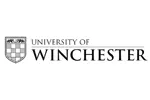About Cultural Heritage Resource Management , MA - at University of Winchester
Cultural Heritage and Resource Management draws upon the expertise of the archaeology department, and a panel of guest lecturers drawn from across the heritage spectrum. This programme offers a perspective which although grounded in UK archaeological and museums practice is also situated within a global context, and offers industry placements and project work in places as diverse as Ethiopia and Barbados.
If English is not your first language: IELTS 6.5 (including 6.5 in academic writing) or a TOEFL score of 575 (paper-based) or 232 (computer-based) or equivalent
Application process: UKPASS (full-time applicants only) or Direct Entry Application Form (part-time applicants only)
Programme ContentPeople are fascinated by cultural heritage. In recent years there has been a growing interest in archaeological sites, historic buildings, museum displays and even ancient landscapes and folklore. Why are people interested? What does this say about our society? And how is this cultural heritage recognised and cared for? What are the challenges faced by people working in cultural heritage? This programme attempts to answer some of these questions by bringing together lively debate with expert knowledge of the sector to give you an excellent knowledge of the practical and theoretical issues involved in cultural heritage.
This programme considers the wider place of heritage management in contemporary society, and offers students the chance to undertake their own projects on a range of different subjects. Using both a British and a global approach, the theory and practice of cultural heritage and resource management is investigated. The course uses experts from museums and galleries, cultural tourism, theme parks, national, local and global heritage organisations, heritage publications, archives, libraries and archaeological units. Students undertake an industry placement and write a major piece of original work which will form the core of their assessment. In addition, students are able to participate in the department’s own research projects, which currently focus upon archaeological sites in Winchester, Cornwall, Georgia, Armenia, Corsica, Barbados, Ethiopia and Egypt, and are encouraged to use their skills in enhancing and developing existing cultural heritage strategies in these locations.
ModulesSemester 1:Introduction to Heritage Management:
A wide-ranging module which introduces a British and local perspective on the heritage industry and associated legislation, problems, ethics and approaches.
Global Issues in Heritage Management:
Looks at problems in heritage management on the global scale and augments the debates outlined in the Introduction to Heritage Management module.
Research Methods
Dissertation Module
Semester 2:Museums Management: Looks in more detail at the museums industry
Placement in Industry (200 hours in total)
Dissertation Module
Plus one optional module to be selected from all period/depth study or methodological modules available in the Archaeology programme.
AssessmentAssessment patterns are designed to be stimulating, flexible and challenging. ‘Traditional’ forms of written essay underpin most of the assessment. In addition, we encourage the use of oral and poster presentations (both of which are very useful career development tools, especially for those intending to work in this sector, an area which places great store upon effective communication). A longer dissertation, on a subject chosen by the student, and underpinned by a specialist study skills module, forms the core of the programme assessment. The placement module is assessed on the basis of a diary and a blog; this is essentially a reflexive exercise in which the student is encouraged to continually and critically assess their own progression and experiences.
DissertationThe dissertation, an extended piece of work based upon original research, is 15,000-20,000 words in total. Students attend in the first semester a study skills module (research methodology) which helps them develop the skills needed to undertake a major piece of self-directed research. Topics are agreed during the early part of Semester 1, and at all stages one-to-one tutorials monitor the progress of the research and writing up.
CareersThe heritage sector is currently very vibrant and in many respects is least affected in an economic downturn. Opportunities for employment exist in traditional fields such as museums and galleries, but also in education and outreach, libraries and archives, archaeological units, and local and national government. This programme, with its unique local and global perspective, and its multifaceted approach, is well placed to provide students with the best chances to find a rewarding career in heritage.


